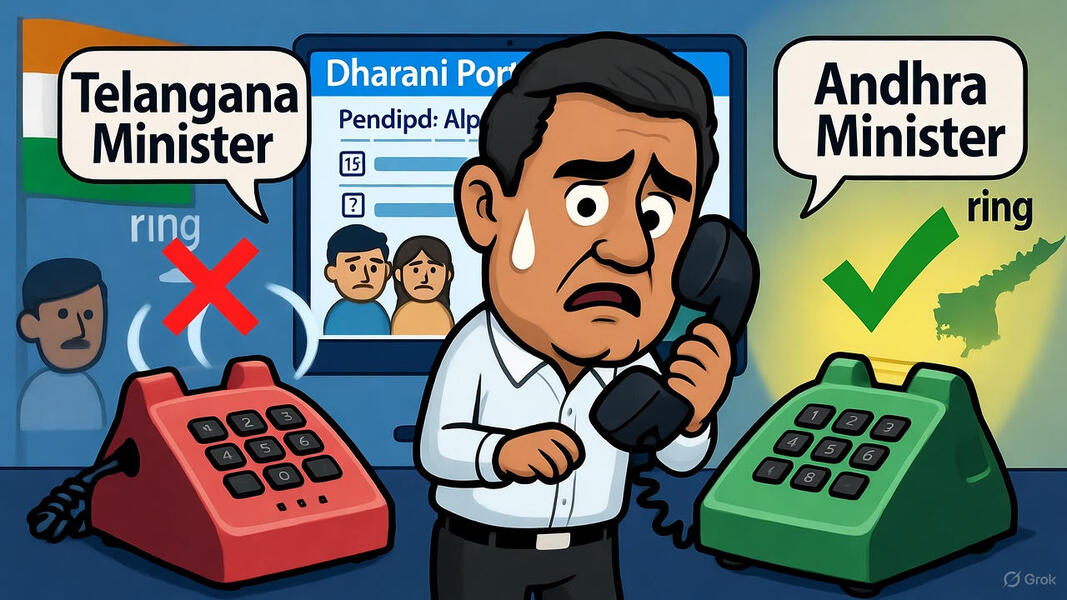- Marwadis Refuses to Speak the Local Language even after Decades
- Even in Villages, the same Arrogance Continues
- At the Same Time, they Dominate Local Traders
- Reasons for the Marwadi Go Back movement
- ‘South Sena’ says North Indian Dominance Rising
Article Today, Hyderabad:
A fresh debate has erupted in Telangana over the alleged reluctance of Marwadis to adopt Telugu language and culture, even after decades of settlement. The campaign titled Marwadi Go Back is gaining traction, with organisations such as South Sena highlighting both cultural and economic dimensions.
Language Divide Sparks Anger
Marwadis have lived in Hyderabad and several Telangana districts for generations. Yet, critics argue, they continue to avoid learning or speaking Telugu. Instead, they insist on Hindi in daily interactions, forcing locals to adapt. Community leaders accuse Marwadis of showing disregard for the language and culture of the state that hosts them. This perception, they say, lies at the root of growing resentment.
Echoes from Past Struggles
Observers compare the current mood to earlier agitations against dominance. Telangana’s own resistance to Andhra control and Tamil Nadu’s anti-Hindi struggles are cited as precedents. The call against Marwadi dominance, supporters argue, is part of the same historical lesson—that no community accepts another’s supremacy for long.
Economic Clout and Local Fears
The discontent is not just cultural. Local traders allege that Marwadis are squeezing them out of business. They point to the control Marwadis hold over wholesale and retail supply chains. With access to cheaper goods, Marwadi traders set market prices, leaving smaller local businesses unable to compete. Critics further claim that Marwadis prefer to employ only their community members, denying jobs to locals.

Cultural Disconnect Adds Fuel
Beyond economics, activists highlight a cultural gap. Despite living in Telangana, Marwadis are accused of ignoring or even slighting local festivals such as Bathukamma and Bonalu. ‘South Sena’ leaders Ravi, Srinivas, Ramesh (Pruthvi), Srikanth and Jagadeesh are argue that this alienation deepens the sense of “outsider dominance,” pushing communities to mobilise under the Go Back slogan.
Expansion Across Sectors
Traditionally known for running kirana stores and jewellery shops, Marwadis have now expanded into diverse fields—electronics, footwear, hardware, granite, and more. Their wide network and financial strength have consolidated their hold. For local businesses struggling to survive, this dominance is seen as a threat rather than healthy competition.
Political Colour to the Campaign
The agitation has not remained purely social or economic. Political parties have stepped in. BJP leaders, including Union Minister Bandi Sanjay, accuse Congress, BRS, and AIMIM of fuelling the movement to divide Hindu society. They argue Marwadis are contributors to Hindu causes and economic growth, not exploiters. On the other hand, activists counter that local survival must come before community loyalties.
A Complex Conflict Ahead
The Marwadi Go Back agitation now stands at the intersection of language, livelihood, and politics. What began as a cultural grievance has evolved into a larger debate on economic justice and regional identity. With politics entering the scene, the conflict is expected to intensify, raising hard questions about coexistence and cultural integration in a plural state like Telangana.



